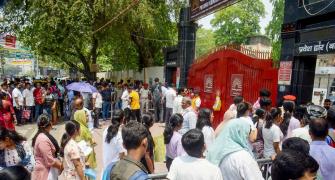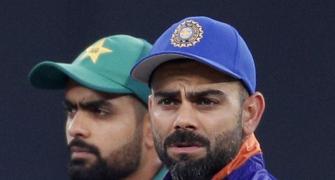The banking regulator has rejected proposals by four banks -- Bank of India, IndusInd Bank, Kotak Mahindra Bank and HDFC Bank -- to increase their capital market exposure beyond the regulatory cap of 40 per cent of net worth on grounds of excessive market volatility.
"None of the proposals were accepted, keeping in view the prudential regulatory considerations," the Reserve Bank of India said in its recent submission to the Parliamentary standing committee on finance, a copy of which is available with Business Standard.
The RBI has the discretion to allow higher capital market exposure to banks with sound internal controls and robust risk management systems, but the banking regulator decided against exercising it.
HDFC Bank had a capital market exposure of 70.58 per cent of its net worth at the end of November 2007. This was before the RBI changed the norms and capped the exposure at 40 per cent of net worth. The exposures of the other three banks were within the regulatory ceiling.
The private sector bank HDFC Bank had requested an increase in its exposure limit to 55 per cent of net worth. The RBI instead asked the bank to bring the capital market exposure down to 40 per cent by April 2008.
The regulations stipulate that the aggregate exposure (funded and non-funded) of banks to capital market in all forms should not exceed 40 per cent of the individual bank's net worth at the end of previous financial year. The 40 per cent cap is applied to both on standalone and consolidated books of banks.
Within the overall exposure limit, banks' direct investment in shares, convertible bonds, capital bonds and debentures, and units of equity mutual fund schemes should not exceed 20 per cent of net worth.
Explaining its decision to turn down the banks' requests, RBI's submission to the Parliamentary standing committee said the Indian stock witnessed a sustained rally between May 2003 and the first week of January 2008 with intermittent corrections.
The uptrend was driven by heavy investments especially by foreign institutional investors (FIIs) on the back of robust macroeconomic growth, strong corporate earnings.
Beginning January 11, stock markets were generally bearish in line with the downward trend in major international equity markets amidst fears over recession in the US economy, the RBI's submission said.
The liquidity squeeze in the secondary market in the wake of large initial public offerings by some companies, weak global markets, heavy net sales by FIIs in the Indian equity market and fall in global metal prices were the main factors that dampened the market sentiment in the last week of January 2008, the central bank said.







